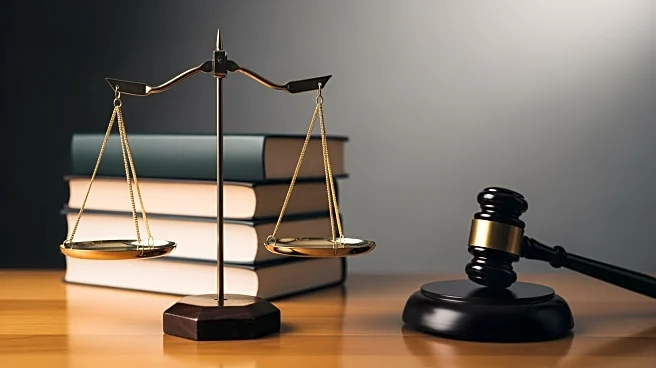What's Happening?
The Trump administration is facing a lawsuit from four major U.S. cities and several labor unions over a new rule that narrows eligibility for the Public Service Loan Forgiveness (PSLF) program. The lawsuit,
filed in federal court in Massachusetts, challenges a regulation that allows the Education Department to deny loan relief to workers whose employers are deemed to have a 'substantial illegal purpose.' The rule has been criticized for imposing an ideological test on public servants, potentially affecting millions of borrowers who rely on PSLF for debt relief. The administration argues the rule is necessary to prevent taxpayer dollars from supporting illegal activities.
Why It's Important?
The legal challenge highlights significant concerns about the impact of the Trump administration's policy on public servants, including teachers, nurses, and firefighters, who rely on PSLF for financial relief. The rule could affect around 9 million borrowers, potentially undermining a program that has bipartisan support and was designed to encourage careers in public service. Critics argue that the rule unfairly targets organizations based on political ideology, threatening the financial stability of public servants and the organizations they work for. The outcome of this lawsuit could have far-reaching implications for the future of student loan forgiveness programs in the U.S.
What's Next?
The lawsuit seeks to have the rule struck down, with a decision expected to impact the implementation of the rule set for July 1, 2026. The case will likely draw significant attention from public service organizations, educational institutions, and policymakers, as it challenges the administration's authority to impose such restrictions. The court's decision could set a precedent for how student loan forgiveness programs are administered and who qualifies for relief.











